An abused animal spawns a new foundation to help deal with the issue of stray and abandoned animals.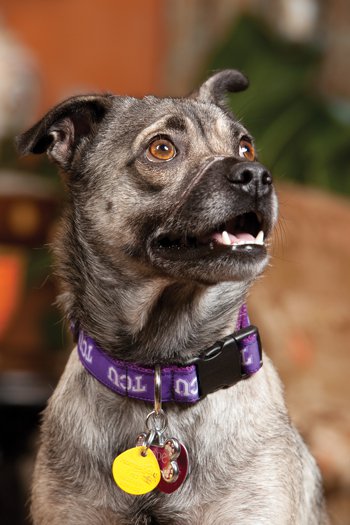
by Mary Rogers
The truck rocketed toward town, fence posts and pastures flashing past. The driver, pushing hard on the gas pedal, was on the phone. It was quitting time, and she had to find a veterinarian fast.
"Rhonda, don't leave. We've got a bad one," she said.
As an animal abuse investigator for Parker County, Karen Kessler had never seen anything like the terrified little dog that hunkered down in the truck's floorboard.
Its jaws had been taped shut, but its tongue swollen saucer size lolled from its mouth, hard, bleeding and streaked with black. The animal could not pant and struggled to breathe. There were deep, bloody wounds on each side of her neck and back. Karen hoped she could make it in time, hoped the vet could save the little pug mix, hoped they could catch the abuser.
It was well past 6 p.m. when Weatherford veterinarian Kevin Buchanan and his vet tech, Rhonda Sears, started to work. It took 100 stitches to close the wounds on the dog's neck and back, but the condition of the animal's tongue and snout with bone exposed was more alarming. They started hydrotherapy and prayed it wasn't too late for the little dog they called Hope.
Saving Hope Foundation from Chad Horany on Vimeo.
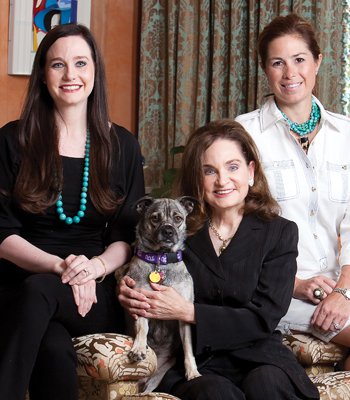 |
Gloria Moncrief Holmsten, Kit Moncrief and Kelsey Patterson with Hope. |
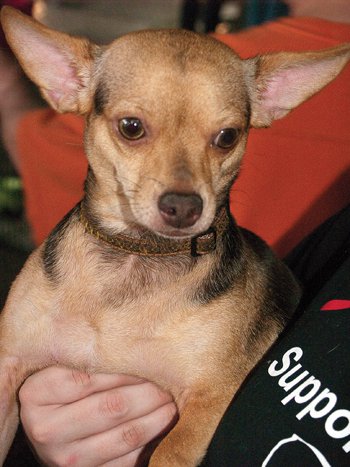 |
Emma was hit by a car and would have been euthanized without rescue from the Fort Worth animal shelter. She's healthy enough for adoption now. |
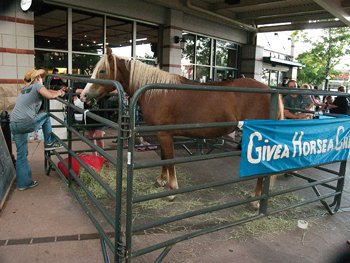 |
Large animals are abused and abandoned also. |
|
|
Jaxson Johnston, 6, finds a friend at an adoption event at Monty's Corner. |
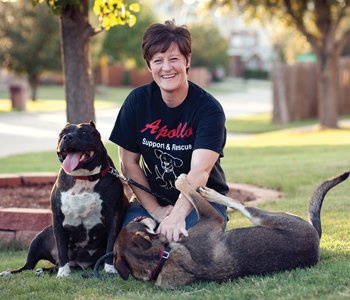 |
Danielle Stewart Apollo Rescue |
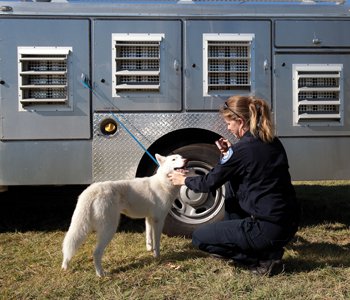 |
Animal Control Officer Misty Williams photographs an animal for posting on the city's Web page. Photos are posted immediately. |
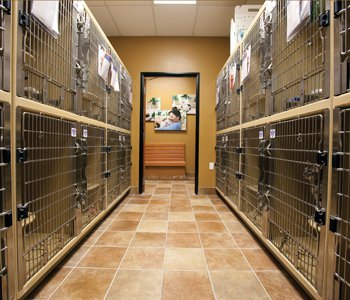 |
Volunteers staff this new PetSmart Adoption Center. |
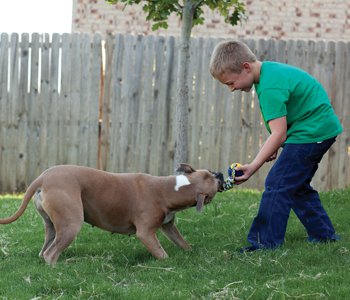 |
Triston Drake, 7, with Paradise the dog |
She had been someone's pet, known gentle hands, curled up at someone's feet, a steady heartbeat in an anxious world. But on the night of July 8, 2012, with the moon in its last quarter and a troubled wind prowling the thirsty land, she was betrayed and brutalized.
Yet this 30-pound bundle of courage didn't just survive that gruesome night.
Never showing aggression or fear of people as her wounds healed, she triumphed, inspiring Fort Worth conservation and Western heritage advocate Kit Moncrief and her daughters Gloria Moncrief Holmsten and Adelaide Moncrief Royer to start the Saving Hope Foundation with seed money donated by her husband, oil man Charlie Moncrief, and administered by the Community Foundation of North Texas in Fort Worth.
The Saving Hope Foundation (saving-hope.com) began in August.
"It will fill the gaps," says Kit who envisions a mobile spay, neuter and vaccination clinic among other things. "We don't want to duplicate services," she says.
"We want to be able to help any cause that will make a difference in the community … end puppy mills and over breeding and promote outreach and information on what already exists here," says Gloria.
The women have assembled a blue ribbon board that includes Kelsey Patterson, Amanda Bush, Mary Ralph Lowe, Stacie McDavid, Samantha Pace and Lorene Agather.
But unlike most boards that meet on a regular schedule, Kit envisions something more flexible. "We'll probably get word of a need, and we'll meet on the phone and make a decision," she says.
Long an advocate for animal adoption, Kit has taken in dogs, several mustangs and four burros. Hope is the newest member of the family. The Moncriefs were traveling when the dog was found in a brush-filled dry creek bed on their Parker County ranch.
They adopted the little dog and agreed to "share" her with Sears, the vet tech who took Hope home with her each evening during her recuperation.
"She has known love," says Rhonda, stroking Hope's head. "She didn't need to be in a cage. She needed human contact."
"When we're out of town, she'll be with Rhonda," says Kit.
Angered by the dog's condition, Parker County Sheriff Larry Fowler sent the tape that bound the dog's jaws to the crime lab and quickly launched a massive door-to-door search to learn anything he could about the dog. He came up empty-handed.
A $35,000 reward for information leading to the arrest and conviction of Hope's abuser was raised. Picked up by dozens of papers, the story flashed across the country. At least one London paper reported the story during the Olympics, and thousands of people from all over the globe e-mailed and sent notes of encouragement.
"We heard from people in London, the Netherlands, Russia, Turkey … all over the world," says Fowler.
But Hope is not the only gentle spirit to survive abuse. "There are so many Hopes out there," says Kit. "The shelters are full of them."
A Great Problem
There are dozens of shelters in North Texas. Each municipality from Benbrook to Watauga and every place in between operates one. So does the respected Humane Society of North Texas. But Fort Worth's animal shelter is among the most crowded.
"We operate at capacity every day," says Brandon Bennett, Fort Worth's Code Compliance Director. At the end of the day, there must be no more than 315 animals.
"If 100 dogs come in, 100 have to go out. If 30 are adopted, that leaves 70 that must be euthanized. It's the only option," he says.
In a push to reunite owners with missing pets, each animal control truck is equipped with cameras. A stray dog's photo is immediately posted on the city's Web page. Owners searching for lost pets in Fort Worth can go to fortworthtexas.gov and click on "Animals" (under "Services") to see photos.
"We do the same thing with cats, but it's harder to get a cat's picture," says Bennett. After 72 hours, these animals land on the adoption list or are scheduled for euthanasia.
Healthy animals with easy temperaments are considered adoptable, those that are sick, aggressive, have ringworm, heartworm or respiratory problems are not.
To get the greatest number of animals "going out," the city shelter has partnered with PetSmart Charities Inc. since 2010, pushing the adoption rates through the ceiling.
The city has put down hundreds of animals in the unadoptable category, but the PetSmart connection has saved thousands that are well.
"We haven't euthanized a single adoptable animal since the program started," says Bennett, who praises Fort Worth businessman Bill Boecker for hatching the plan. "Bill brought a high-level business approach to this problem. It's now a national model," he says.
Fort Worth picked up about 20,000 animals in 2011, an increase over the previous year. On average, the live release rate has ranged from 60 to 66 percent, said Diane Covey, the public information officer for the city's code compliance department. But this July, 70 percent of the animals were released to owners, adopted or rescued, she said.
Volunteers are Vital
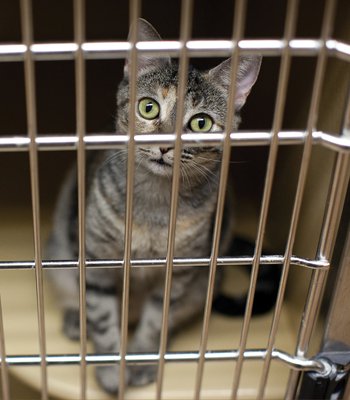 |
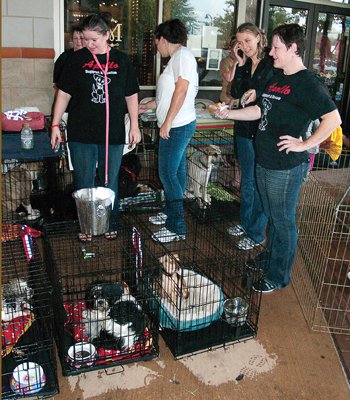 |
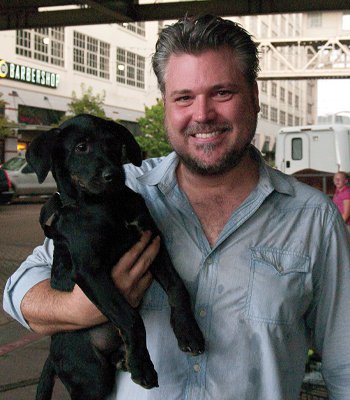 |
But the PetSmart Adoption Center wouldn't work without volunteers. "We are $45 million in the hole again this year, $48 next year, $50 the year after that. The city can't do more. Without the volunteers, PetSmart wouldn't happen. The city couldn't pay for that," says Bennett.
Volunteers working social media have also made a positive impact.
"Volunteers man the Urgent Animals at Fort Worth Care and Control page on Facebook," says Bennett. "The city doesn't sponsor that. It's volunteers communicating the urgency of the situation. If something doesn't happen and fast, the animals on that page will be euthanized."
This is the place where animal rescue groups make a difference, and there are many of these including breed specific rescues. "If it wasn't for the rescue groups, we'd be in a world of hurt," says Bennett.
Rescues are volunteer organizations, seeking to save the lives of animals that otherwise would be killed because there are issues such as health and temperament with them.
Danielle Stewart with Apollo Support and Rescue begins her day by looking at the Urgent Animal page.
"Rescues get the animals that no one wants … unadoptable animals. Sometimes it's a minor respiratory problem like a cold, but the animal would be killed because there's no money for medical treatment and no room for one that can't be adopted immediately. Rescues get the animal ready to be placed in a home without $1,000 in medical bills," she says.
Stewart is ex-military and all business, but a visit to the Fort Worth animal shelter is always emotional.
"There's just so much need there … more than the other shelters," she says. "Every time I go, I get a knot in my stomach."
Typically rescue groups don't have a location where pets and would-be owners can meet. Instead, these groups rely on donated locations.
Monty's Corner, an eatery with a pet-friendly patio at Fort Worth's Montgomery Plaza, is only one. It hosts Monty's Monthly Mutt Movers on the third Saturday and Sunday of each month from 11 a.m. to 3 p.m. A number of rescue groups use the facility.
During a recent August event - interrupted by a heavy rainstorm - animals up for adoption included a horse and a large number of puppies and adult dogs. It's a highly visible forum for rescue organizations, and the noise and excitement draws interest among the shopper and restaurant patrons who frequent the popular Montgomery Plaza area.
Owner Shawn Horne is in the kitchen, but Elisabeth White talks about their commitment to the program. "Shawn has a dog named Wolfgang after his former boss, Chef Wolfgang Puck … and we're both real animal lovers," she says.
"Shawn lets several rescues show animals here. It's not one group and Monty's doesn't have anything to do with the adoptions, but we want to do our part to help put these animals in homes. Every month gets better. … If we can help save more lives by doing this little thing, then it's the right thing to do," says White.
One person there was Scott Challgren, a teacher in the Fort Worth ISD, who took in what he calls his "miracle dog" five months ago. She had been shot with a shotgun, and her rescue name was Shotgun Annie. He renamed her Oakley.
"She still has about 50 pellets in her side," he said.
But the surprise was that she was pregnant and gave birth to seven puppies - three white, three black and one brown. All but three have been adopted and that's why he was at Monty's - to place them.
"I've been rescuing dogs and animals for 10 years," he said. He works through the Animal Rescue Corps.
Responsible Ownership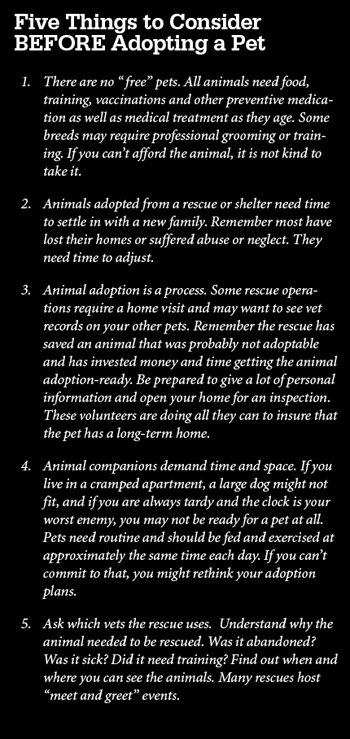
While rescues survive by donations and compete for the same dollars, they agree that responsible pet ownership means the animal must be spayed or neutered and vaccinated. They also see more and more owners struggling to find ways to keep and care for their pets.
Stacey Schumacher, founder and director of Texas Coalition for Animal Protection, says TCAP, with two clinics in the area, is a leader in low-cost spay, neuter and vaccination services.
After a dozen years in the field, she knows how important it is for people to be able to take care of their pets. With a master's degree in liberal arts from Southern Methodist University, she says she feels "called" to this work.
TCAP doesn't provide full-service care, but it does partner with a lot of rescue organizations and contracts with a dozen vets, says Schumacher. But her focus is always on the people.
"We try to be a resource so people can love their pets better," she says. As the economy has hammered the middle class, Schumacher has seen TCAP clients change.
"When we started in 2000, we served the indigent and saw pets that had never had care. Many of the animals we see now are owned by families who once could afford full-service care, but can't now because of lost jobs," she says.

